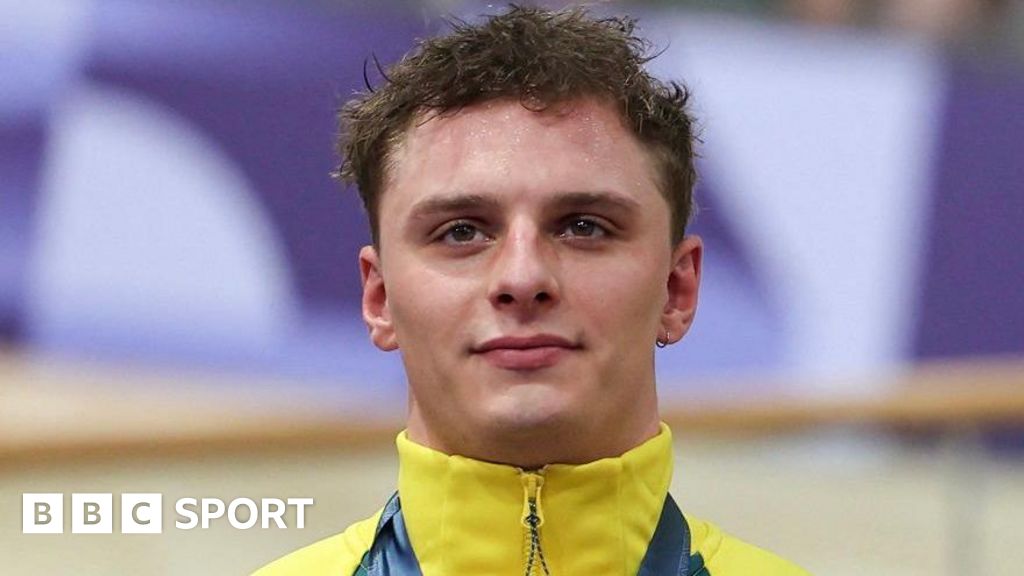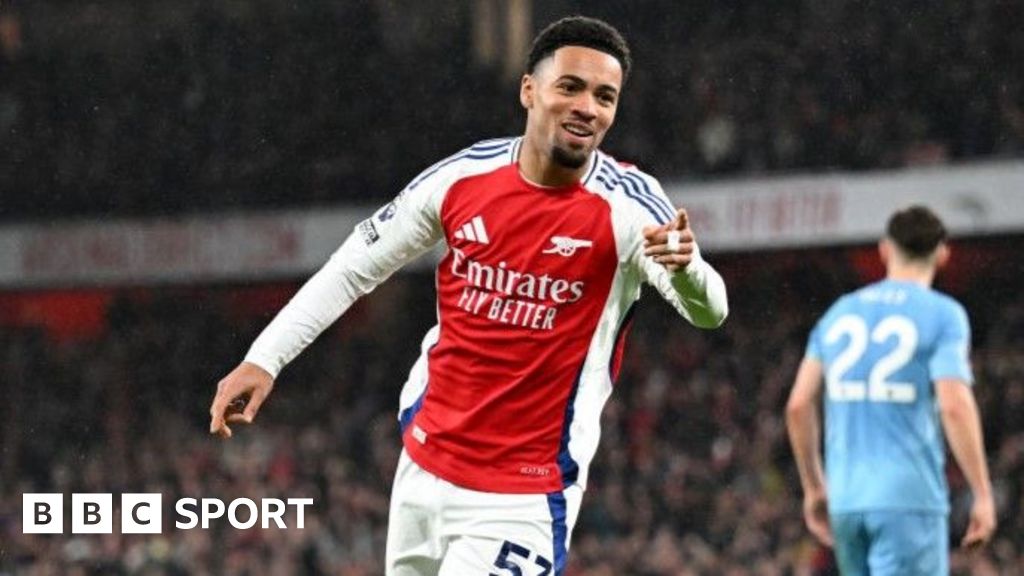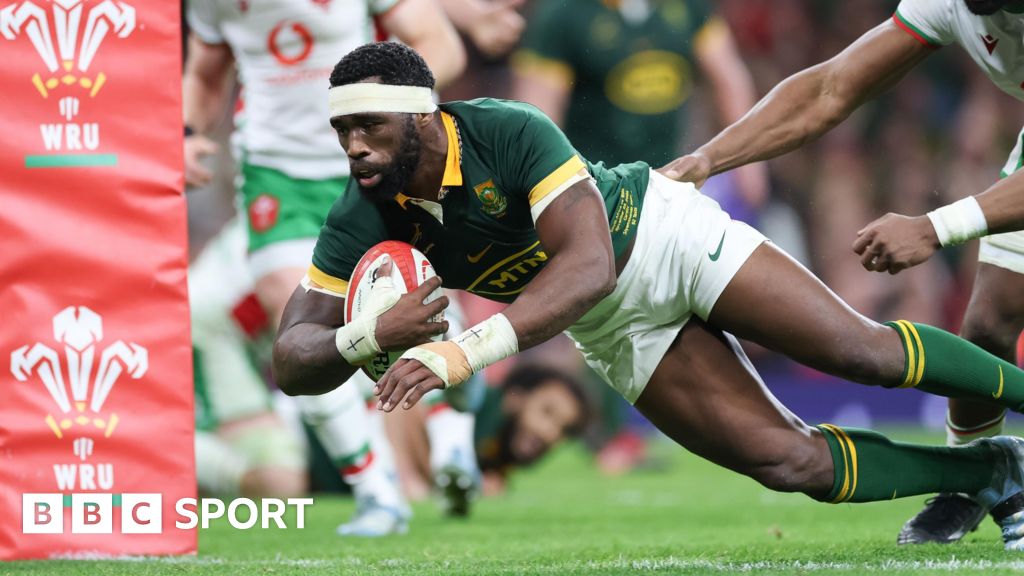ARTICLE AD BOX
Autumn Nations Series: England v Australia
Venue: Allianz Stadium, Twickenham Date: Saturday, 9 November Kick-off: 15:10 GMT
Coverage: Listen to live commentary on BBC Radio 5 Sports Extra and BBC Sounds, follow live text commentary on the BBC Sport website and app.
The soft centre of a southern hemisphere sandwich. That is how Saturday’s encounter with Australia appeared when England revealed their 2024 autumn fixtures.
Between ever-competitive New Zealand and world champions South Africa, England play an Australia team they have beaten in 10 of their previous 11 meetings - a run stretching back to 2016.
More recent form doesn't challenge the perception either.
Australia have lost five of their last six matches. They finished bottom of the Rugby Championship. Last year's Rugby World Cup campaign ended in a miserable pool-stage exit. They are ranked ninth in the world, below Italy and a smidge above Fiji.
The current crop of Wallabies are certainly short of bounce. They can, however, still box. Canny coaches, blockbuster talent and a cherished underdog status give the tourists a puncher's chance at Allianz Stadium, Twickenham on Saturday.
And, given their wobbly form, England are certainly not invulnerable to an upset.
Steve Borthwick's side themselves have only one win - a comfortable cruise past Japan - from their last five fixtures. Several times in that run, they have been locked on for the winners' enclosure, only to veer into the rails in the final quarter.
Their ability to fade faster than a boil wash is stark.
Among the top 10 teams in the world this year, none have scored more points than the 77 England have chalked up between 40 minutes and 60 minutes in matches. But, contrastingly, none have scored fewer than the 35 they have managed from the hour mark to full-time.
England have a points difference of 47 from 40-60 minutes in matches this year. They are minus 23 from the final quarter.
The way that an eight-point lead evaporated late on against All Blacks last weekend swung the spotlight onto England’s bench.
Replacement fly-half George Ford missed two potentially match-winning shots. Scrum-half Harry Randall struggled to connect with his team-mates. The rejigged forwards went into retreat.
Borthwick has made changes in the hope his finishers can match up to the job description.
All-brawn Luke Cowan-Dickie comes into the squad in place of all-court Theo Dan. The six-two split on the bench between forwards and backs has been abandoned in favour of a more conventional five-three split, meaning the pack won't be shuffled as dramatically in the closing stages.
The only change to the starting XV is a positional switch in midfield, with Ollie Lawrence swapping to outside centre and Henry Slade coming inside to 12.
The theory is that it should enable Lawrence - restricted to two carries against New Zealand - to get the ball in more space.
However, the revival of a dual playmaker shape that worked fitfully under Eddie Jones has potential weaknesses.
Slade will have to lead the backline defence from a different perspective, clocking dangers both inside and outside. Just back from shoulder surgery, he is also placed in the high-traffic lane where Lawrence made 27 tackles against the All Blacks. Len Ikitau - Australia's hard-running inside centre - is sure to test Slade early.
On the other side of the ball, England certainly need something to spark their attack.
Against New Zealand, they were heavy on perspiration, but light on inspiration.
England's solitary try came from a smart Marcus Smith intercept of a ponderous pass, but they rarely looked as if they could pick a way though the defence via their own wit.
Among the world’s top 10 nations, only Wales have been less efficient in turning entries into the 22 into points this year.
England have some fine attacking talents. But, whether it is the system or individuals within it, potential has not been cashed in as points.
If it had, their last four defeats - all by a converted score or less - could have been very different.
England's repeated failure to get over the horizon and out of sight will give 5-1 outsiders Australia hope.
The instant installation of Joseph-Aukuso Suaalii in the backline will add to it, even if the weight of expectation will surely sit heavy on the 21-year-old.
An age-grade phenomenon, Suaalii has been brought back to union from rugby league in a statement move aimed at galvanising a team and reinvigorating a sport.
For all the dollar signs and headlines though, his first game of union since his school days will come at Test level, with unfamiliar team-mates alongside him and 80,000 fans in front of him.
Head coach Joe Schmidt admitted picking Suaalii is a gamble, and that it was one that might not pay off immediately.
"If not now, when?" said the New Zealander.
"I think it makes some sense for him to play. It's unlikely it'll go perfectly, but it will be a benchmark that he can build from."
Angus Bell and Taniela Tupou are formidable foundations and the props will relish the chance to get at England at the set-piece. The back row of Harry Wilson, Rob Valetini and Fraser McReight have been star performers. Twenty-year-old wing Max Jorgensen, who starts on the bench, was almost as highly hyped as Suaalii coming up through school.
Perhaps most importantly, Schmidt, who sculpted Ireland's intricate patterns between 2013 and 2019, is in the stands. His steady hand is even more critical than Suaalii's stardust in Australia's revival.
So far under him improvement has been incremental. Victory over England would be a dramatic break-out success. It would also send Steve Borthwick's men plunging in the opposite direction before the visit of the Springboks.
For all Australia's points of promise, it is a game England should win. But, as the Twickenham regulars can attest, there have been plenty of those.
And, once the final whistle had blown, markedly fewer victories.

 2 weeks ago
4
2 weeks ago
4








 English (US)
English (US)